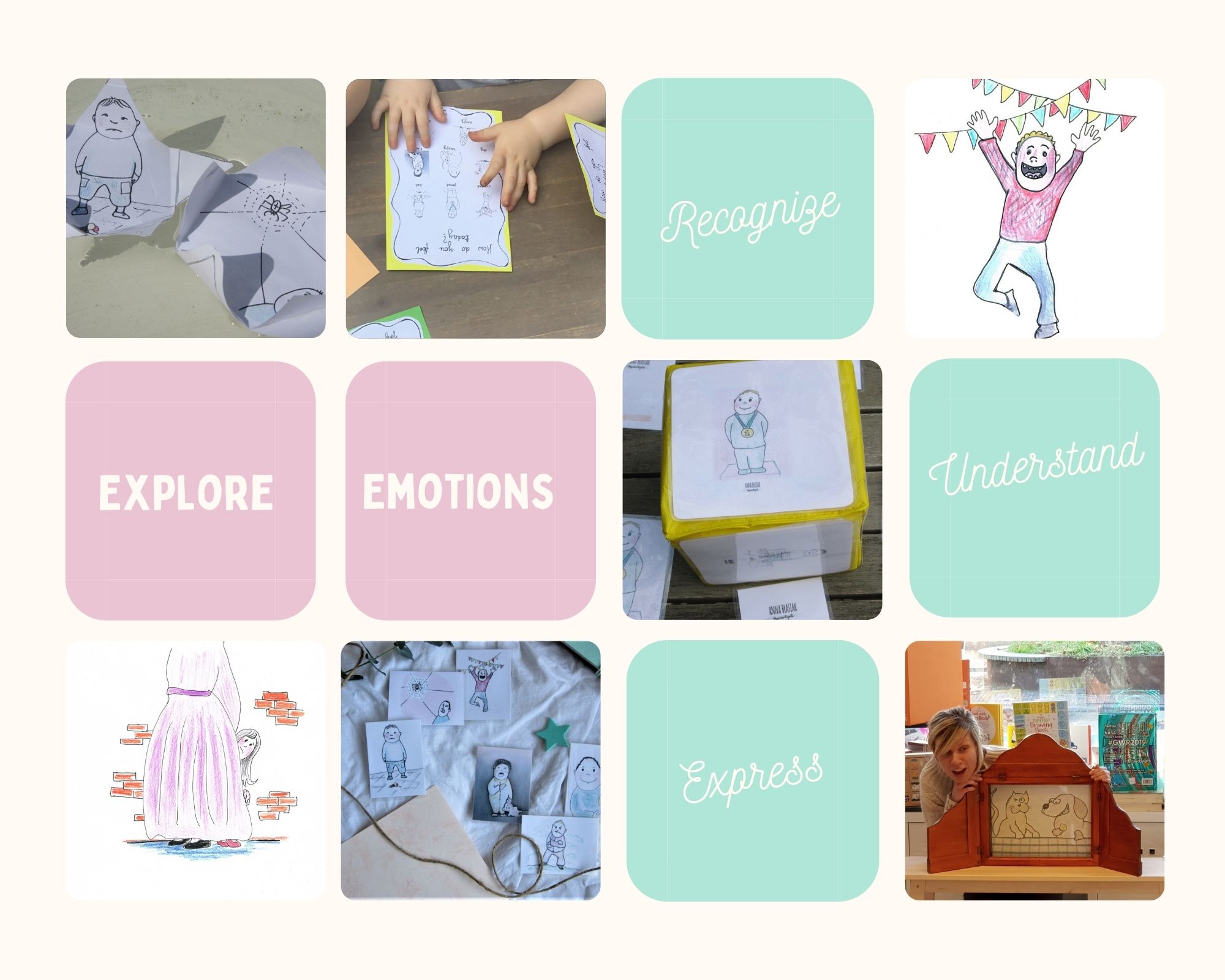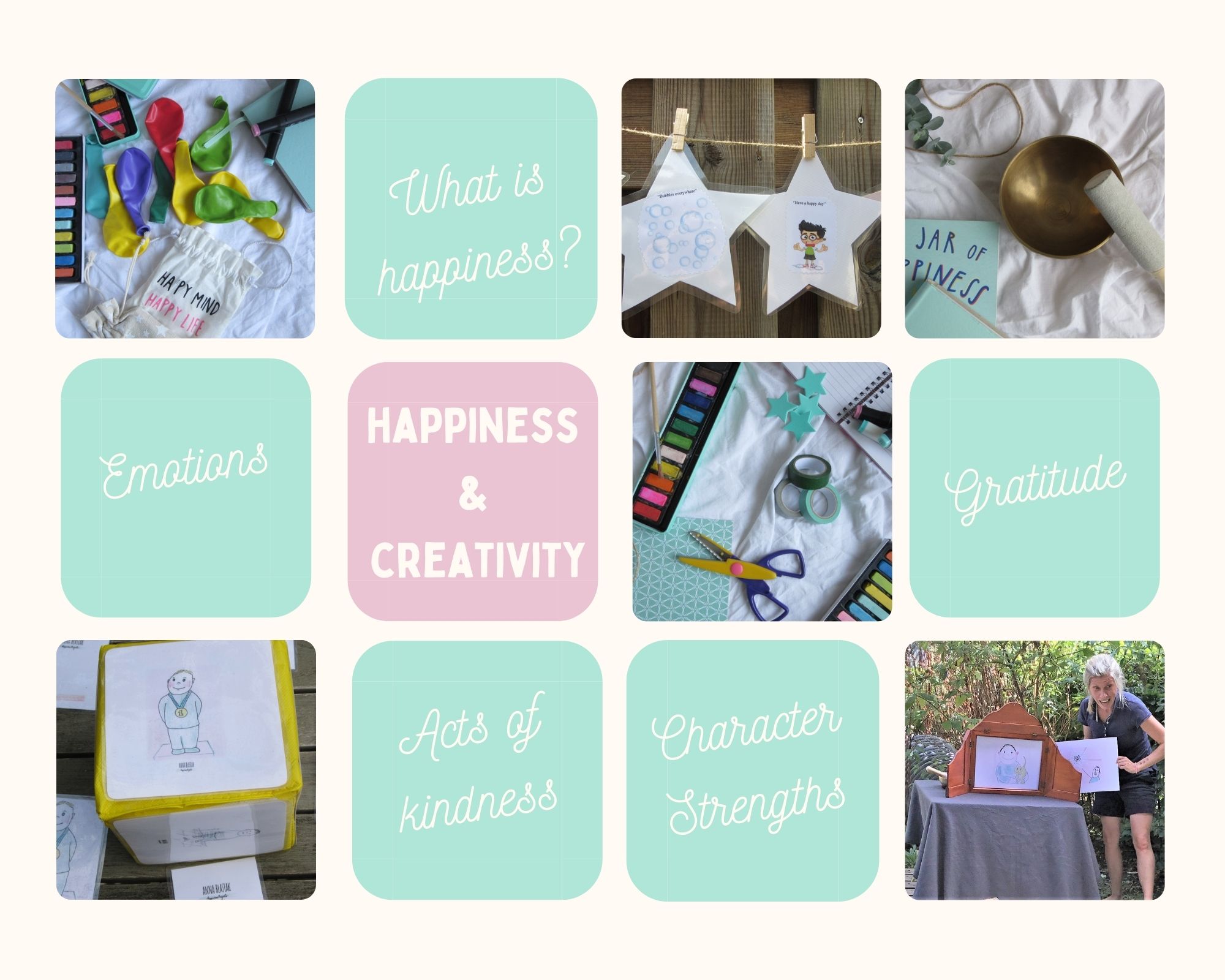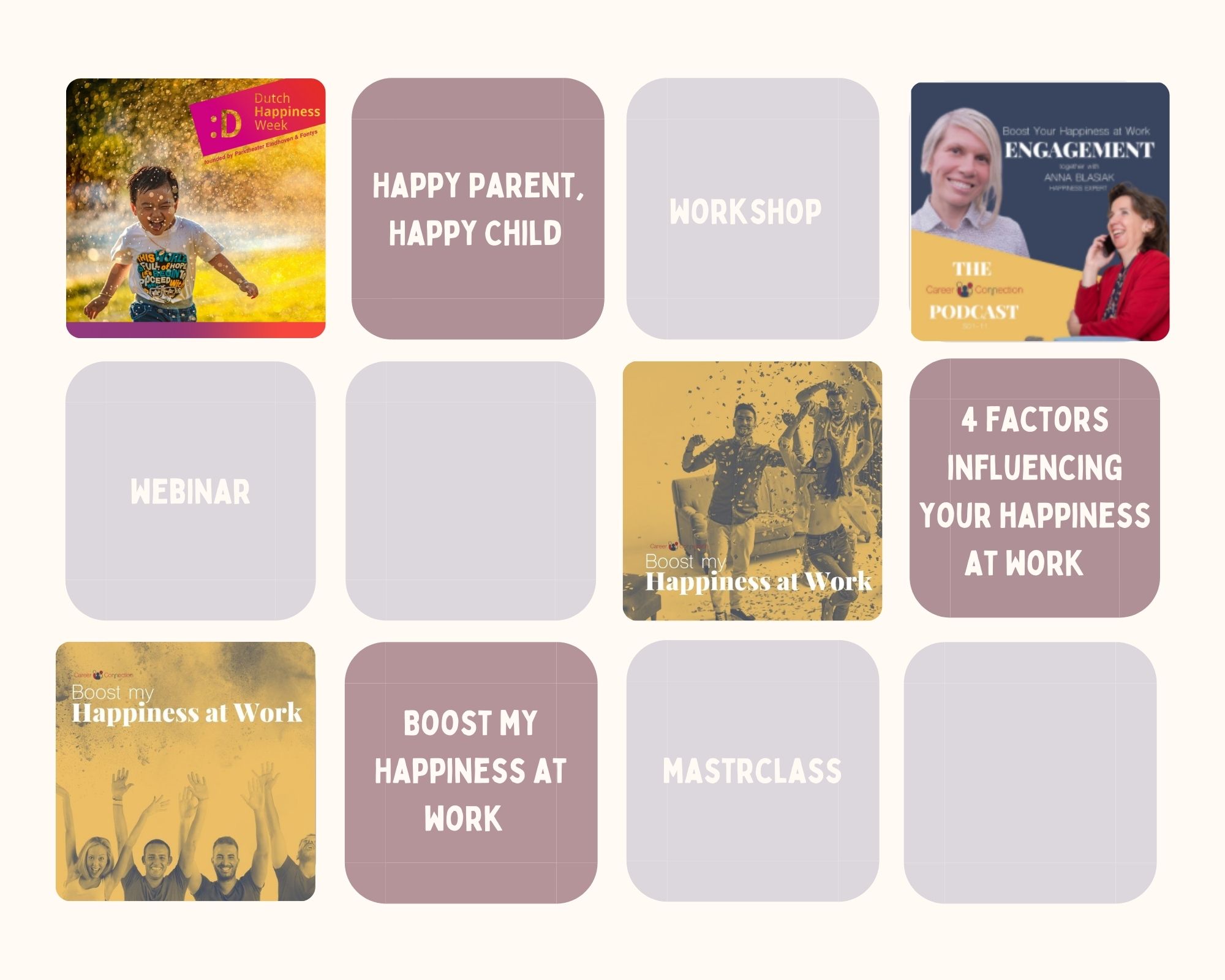for children
The Little School of Emotions
When we can talk about our feelings, they become less overwhelming, less upsetting, less scary.
– Fred Rogers

age group: 3-6 years old
Children explore ways to understand their emotions. In this workshop, children learn to recognize, label, and express their emotions through games, experiments and interactive stories.
Research behind it
Emotional competencies are crucial to form interactions and build relationships with peers and adults (Denham 2003). The research shows that children with developed emotional understanding have fewer behaviour problems (Cook, Greenberg, Kusche,1994), perform better academically, and demonstrate prosocial behaviour (The Greater Good in Education).
Happiness and creativity
The education of even a small child, therefore, does not aim at preparing him for school, but for life.
– Maria Montessori

Age group: 3-6 Years old
The workshop covers topics relating to the concept of happiness: our feelings, what makes us happy, gratitude, and acts of kindness. The workshop’s activities invite children to explore, engage, express themselves and have fun – because that is when they learn the best.
Research behind it
Shoshani and Slone (2017) claim that qualities like gratitude, character strengths, perseverance, kindness, and positive social relationships are valuable and foundational for well-being from the earliest ages and across all ages. Noddings (2003) suggests that education should contribute significantly to personal and collective happiness.
for adults
workshops, webinars, masterclasses

tailor-made
Theoretical basics and practical insights into happiness help us to get inspired, find solutions and grow. The science of happiness supports us in our personal development, at our work, in school, and in many other areas of our life. My projects are tailor-made to the needs of participants. Drop me a line if you have an idea or question.
References:
Cook, E.T., Greenberg, M.T. & Kusche, C.A. The relations between emotional understanding, intellectual functioning, and disruptive behavior problems in elementary-school-aged children. J Abnorm Child Psychol 22, 205–219 (1994).
https://doi.org/10.1007/BF02167900
Denham SA, Blair KA, DeMulder E, Levitas J, Sawyer K, Auerbach-Major S, Queenan P. Preschool emotional competence: pathway to social competence? Child Dev. 2003 Jan-Feb;74(1):238-56. doi: 10.1111/1467-8624.00533. PMID: 12625448.
The Greater Good in Education, https://ggie.berkeley.edu/practice/feelings-circle-an-sel-kernels-practice-for-first-grade/
Yele Center for Emotional Intelligence https://www.ycei.org/ruler
References:
Shoshani A., Slone M. (2017) Positive Education for Young Children: Effects of a Positive Psychology Intervention for Preschool Children on Subjective Well Being and Learning Behaviors. Frontiers in Psychology, 8:1866. doi: 10.3389/fpsyg.2017.01866
Noddings, N.(2003).Happiness and education. Cambridge,UK:Cambridge University Press. Noftle, E. E., Schnitker